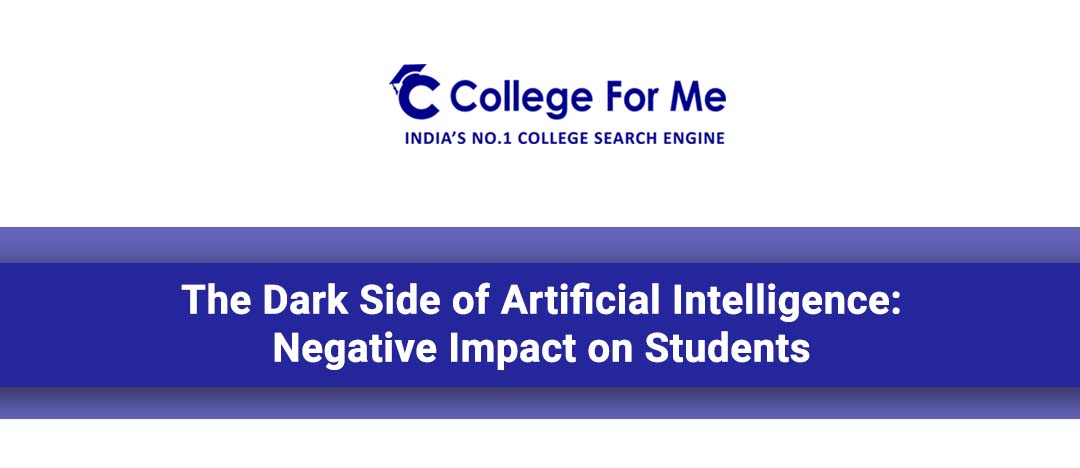Career Scopes Of A B.Tech. Student
There is a high demand for B.Tech. degree holders in the private sector, yet, there is also the opti...

Artificial Intelligence (AI) has revolutionized various aspects of our lives, including education. It offers new opportunities for personalized learning, data analysis, and automation. However, it's important to acknowledge the potential negative impact of AI on students.
In this blog post, we will explore the darker side of AI and its potential negative effects on students, including concerns about privacy, job displacement, inequality, and ethical implications.
Privacy Concerns:
AI relies on collecting and analyzing vast amounts of data, raising concerns about student privacy. With AI-powered educational tools and platforms, there is a risk of unauthorized access, data breaches, and misuse of personal information. Students' data must be protected, and educational institutions should establish robust privacy policies and security measures.
Job Displacement:
As AI advances, there are concerns about the future of employment. Some worry that AI-powered automation may lead to the displacement of certain jobs, including those in education. Teachers may face challenges as AI technologies become more capable of performing tasks traditionally done by humans. It is important to find a balance between leveraging AI's benefits and preserving the invaluable role of human educators.
Inequality in Access:
AI-based tools and resources may create inequality in access to education. Students from disadvantaged backgrounds or regions with limited technological infrastructure may be left behind. The cost of implementing AI technologies, such as smart devices or high-speed internet, can be a barrier for some students. Ensuring equal access to AI-powered educational tools is crucial to prevent the deepening of existing educational disparities.
Bias and Discrimination:
AI systems learn from vast datasets, including historical data that may contain biases. If not carefully addressed, these biases can perpetuate discrimination and inequalities. AI algorithms used in grading, college admissions, or career counseling may inadvertently reinforce biases related to gender, race, or socioeconomic status. It is essential to develop AI technologies that are fair, transparent, and unbiased.
Ethical Considerations:
AI raises ethical concerns in education. For instance, the use of facial recognition or surveillance technologies in schools can infringe upon students' privacy and autonomy. There is also a concern about AI-generated content, such as deep fakes or automated essay grading, compromising academic integrity. Educators and policymakers must navigate these ethical dilemmas and establish guidelines to ensure AI is used responsibly and ethically.
Emotional and Social Development:
AI may impact students' emotional and social development. Increased reliance on AI-powered educational tools and virtual interactions can limit face-to-face interactions, emotional connections, and empathy-building experiences. Balancing the integration of AI with human interaction and emotional support is crucial to promote holistic development in students.
Conclusion:
While AI offers immense potential to transform education positively, it is important to be aware of its potential negative impact on students. Privacy concerns, job displacement, inequality in access, bias and discrimination, ethical considerations, and impacts on emotional and social development are significant challenges to address. As AI continues to advance, it is essential for educators, policymakers, and technology developers to work collaboratively to harness the benefits of AI while mitigating its negative consequences. Striking the right balance between technological innovation and human-centric education is key to ensuring a positive and inclusive future for students in an AI-driven world.

There is a high demand for B.Tech. degree holders in the private sector, yet, there is also the opti...

If you are looking for a bright and prospective career, then getting a B.Tech. in CSE must be under ...
Comments (0)